In a state like California, where there seems to be a new gun law enacted every few months, it can be tricky keeping track of them all.
From mag restrictions to caps on online ammo purchases and even the dreaded Handgun Roster, California laws aren’t easy to keep up with.
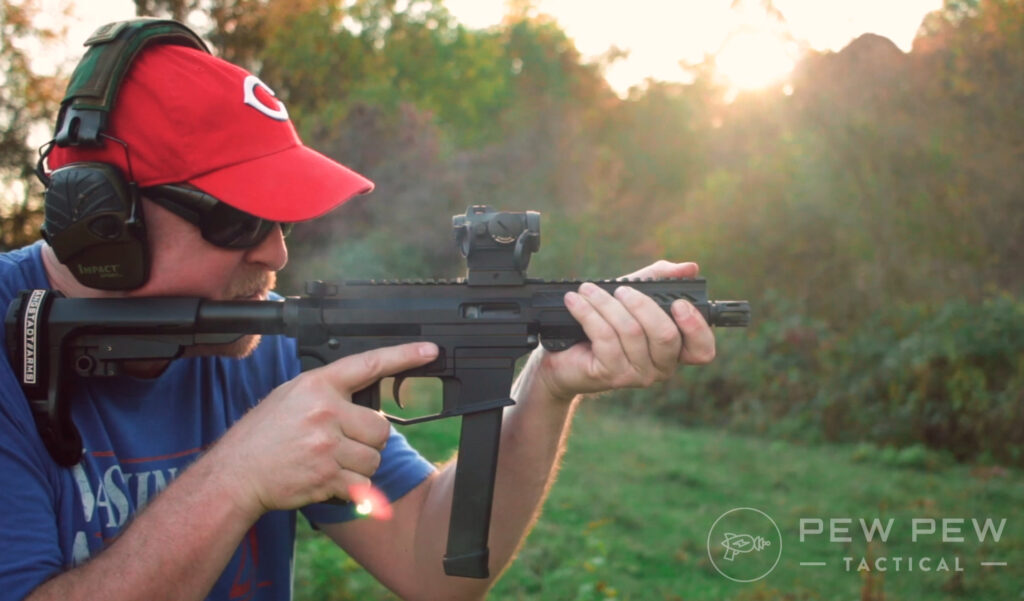
Fortunately, we’ve got just the guide for those of you interested in purchasing your next firearm in Cali.
Whether you already have a safe full of shiny range toys or looking to get your first gun, we’ll walk you through the ins and outs of buying a gun in the Golden State.
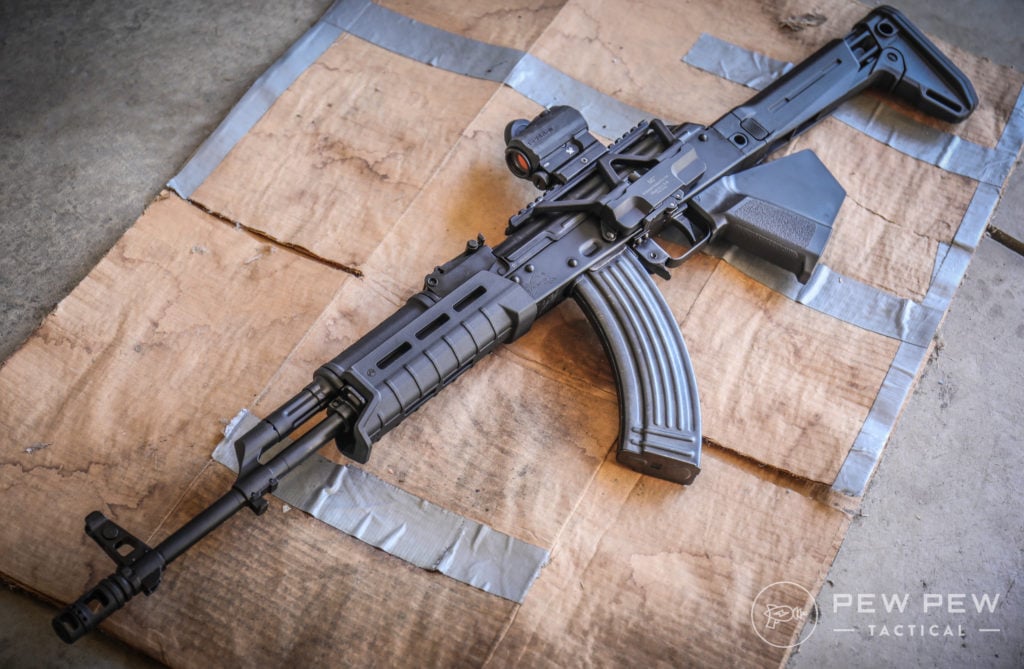
But before we dive in, we gotta do the legal talk first…
Disclaimer: While the information provided here is legal in nature, it is not to be construed as legal advice and is for educational and entertainment purposes only.
Table of Contents
Loading…
Buying a Gun in California
There are a couple of ways to buy a gun in California, though each requires a couple of extra steps beyond what our friends in free states have to go through.
You can purchase your firearm from your local gun store, by ordering online or purchasing from a private individual.
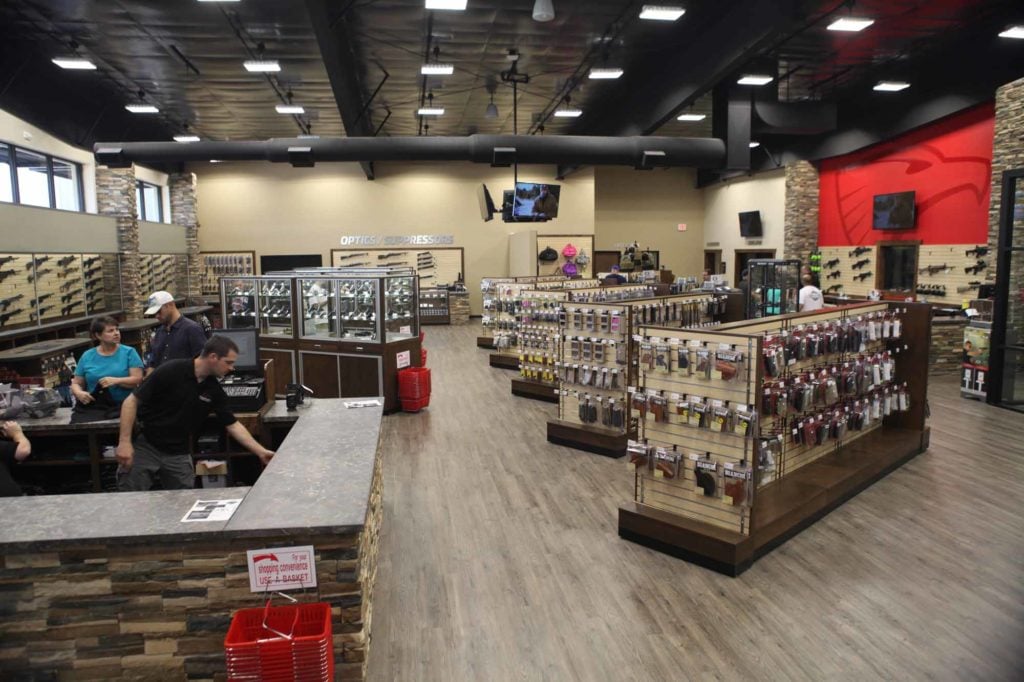
Spoiler alert: no matter which method you choose, you’ll need someone with a Federal Firearms License (FFL) to handle the transaction in person for you.
Regardless of how you decided to purchase your gun, you need to meet some basic requirements.
These vary between handguns and long guns.
Requirements for Buying a Gun
To buy a handgun in California, you must:
- Be 21 or older;
- Provide a CA driver’s license or ID, along with a right thumbprint;
- Have a background check performed by a licensed firearms dealer;
- Provide proof of residency; and
- Provide a Firearm Safety Certificate.
To buy a long gun, you must:
- Be 21 or older;
- Provide a CA driver’s license or ID, along with a right thumbprint;
- Have a background check performed by a licensed firearms dealer; and
- Provide a Firearms Safety Certificate.
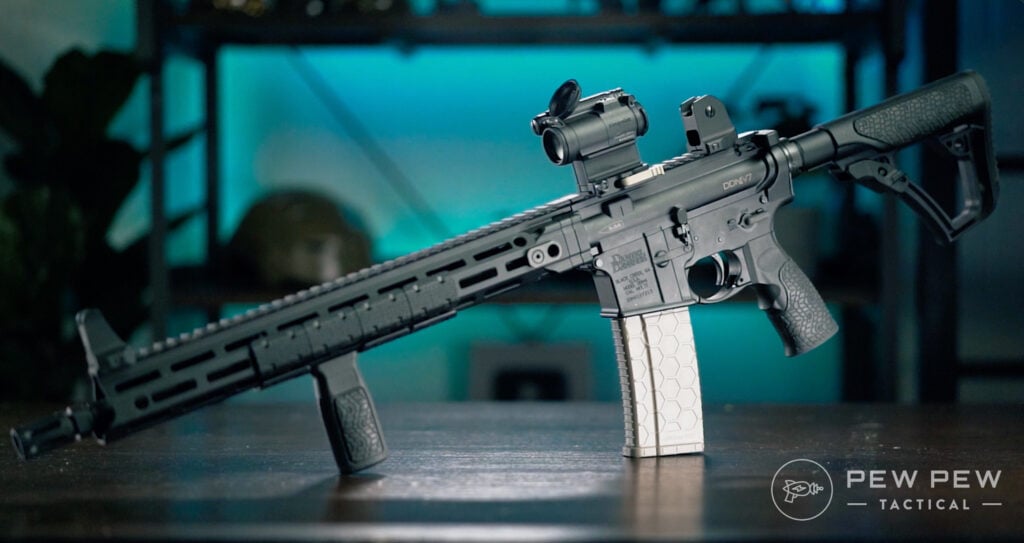
The biggest difference is that you don’t need to provide proof of residency when it comes to buying a long gun.
Proof of Residency
But for those handgun purchases, what kind of proof of residency is needed?
Proof of residency documents can look like:
- A utility bill from within the last 3 months;
- A signed (and notarized) residential lease agreement;
- A property deed; or
- Military permanent duty station orders indicating assignment in California.
You’ll also need to make sure the address on your proof of residency is the same as the address on your driver’s license or ID, too…or else it’s no good.
The California DOJ provides an official list of what is acceptable, however, not all FFLs will accept what the CA DOJ says is acceptable. Yes, it really is as stupid as it sounds.

One of our editors has had his lease agreement, CCW permit, Certificate of eligibility, 03 Curio & Relic FFL license, hunting license, and electricity bill all denied as proof of residency by different California FFLs.
Even though every one of those options are on the official CA DOJ list.
If you’re not sure what your local FFL will accept, bring a folder with everything or call ahead and ask.
Background Check
The age and ID requirements are pretty straightforward, but the background check and Firearms Safety Certificate (FSC) require a little bit more work.
The background check allows the firearms dealer to record the sale and is typically referred to as the DROS (Dealer Record of Sale).
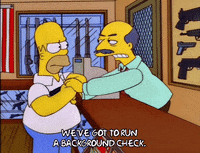
To pass the background check, you can’t have a criminal history.
Lifetime prohibitions on firearm purchase and ownership apply to anyone:
- Convicted of a felony or violent offense including:
- Murder or voluntary manslaughter;
- Mayhem;
- Rape;
- Lewd acts on a child under 14;
- Any felony punishable by death or imprisonment for life;
- Attempted murder;
- Assault with intent to commit rape or robbery;
- Assault with a deadly weapon;
- Misdemeanor domestic violence offense;
- Battery on a spouse, cohabitant, or person currently or previously dated or engaged in a relationship with;
- Kidnapping;
- Robbery; or
- Carjacking
- Committed for a mental health issue more than once in a year; or
- Found to be a danger to themselves or others.
Juvenile prohibitions on firearms purchases and ownership apply to juveniles adjudicated wards of the juvenile court and cannot purchase or own firearms until they turn 30.
Aside from those situations, you also cannot fall into any of these categories:
- Charged with a felony offense;
- Voluntarily a patient in a mental health facility;
- Under a gravely disabled conservatorship;
- Addicted to narcotics; or
- Are subject to a protective order.
Firearms Safety Certificate
Once you’ve made sure there aren’t any issues with the background check, you may apply for an FSC to show as part of the purchase process.
This certificate is a small card you get once you pass the California Department of Justice’s Firearms Safety Exam.
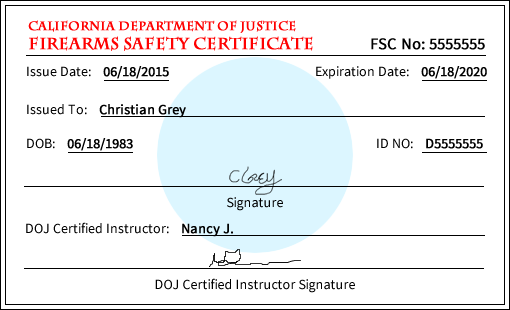
The FSC exam goes over the basic firearms safety rules, including safe storage of firearms when not in use.
Need to study?
Grab the California Firearms Safety Guide from the CA DOJ website.
The exam can be taken at any local gun store.
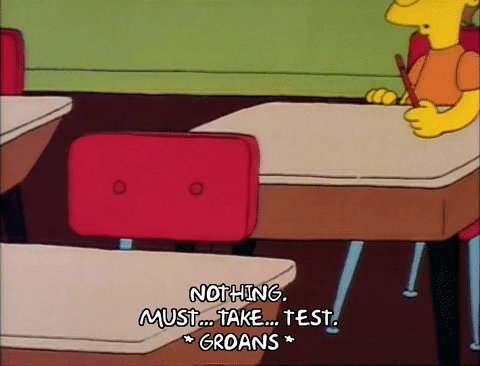
You need to score at least 75% to pass – meaning you can’t get more than seven questions wrong on a 30-question test.
If you fail the test, you will need to wait 24 hours before taking it again. On the bright side, you can take the test an unlimited number of times.
Once you pass the test, you will be given an FSC.
You must present this card when you buy a firearm in California. It also must be renewed every five years.
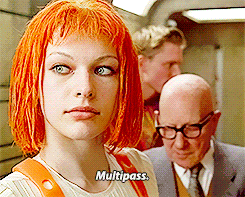
There are some exceptions to the FSC, though.
If you are a military or peace officer, or retired peace officer, you don’t have to provide an FSC when you buy firearms.
Anyone who is licensed to carry concealed in California also does not have to present an FSC.
Instead, you’ll need to show your CCW permit when you buy a firearm.
CA Handgun Roster
There are a few more things to keep in mind if the gun you are buying is a handgun.
First off, California restricts the types of handguns that can be purchased by civilians.
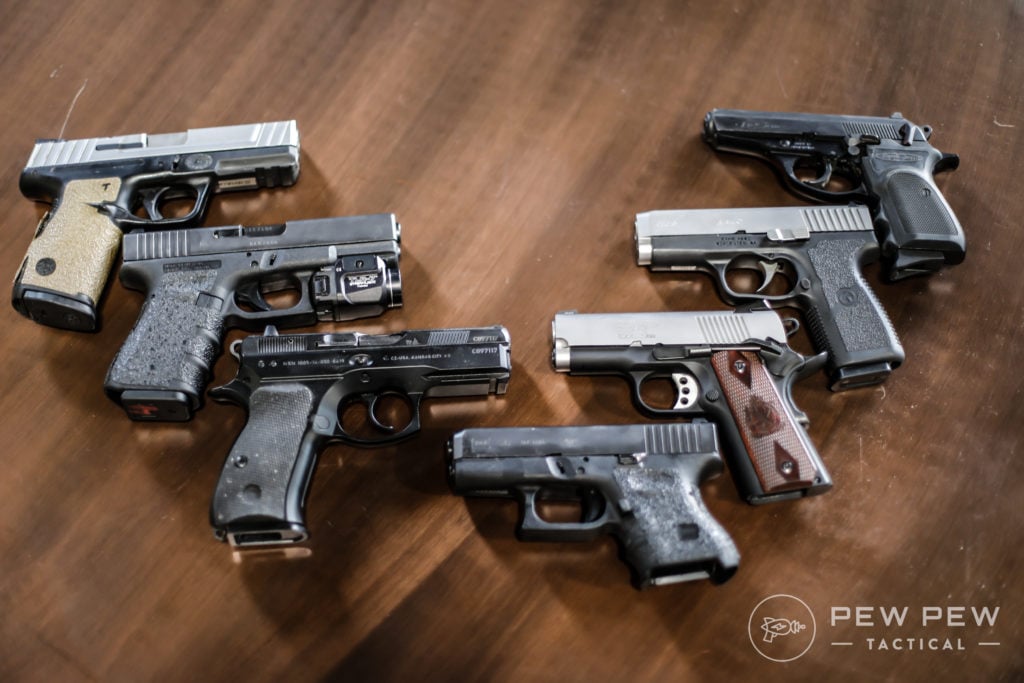
Known as the Handgun Roster, this list of handguns is approved by the CA Department of Justice for ownership.
Since the state placed very strict requirements on new guns that can be added to the list, guns on the roster are typically older model guns.
Buying In-Person, Online, or Through a Private Sale
With the basics of buying a gun out of the way, you have a couple of ways to actually purchase a firearm in California.
Important to note: you can only purchase one handgun or long gun every 30 days.
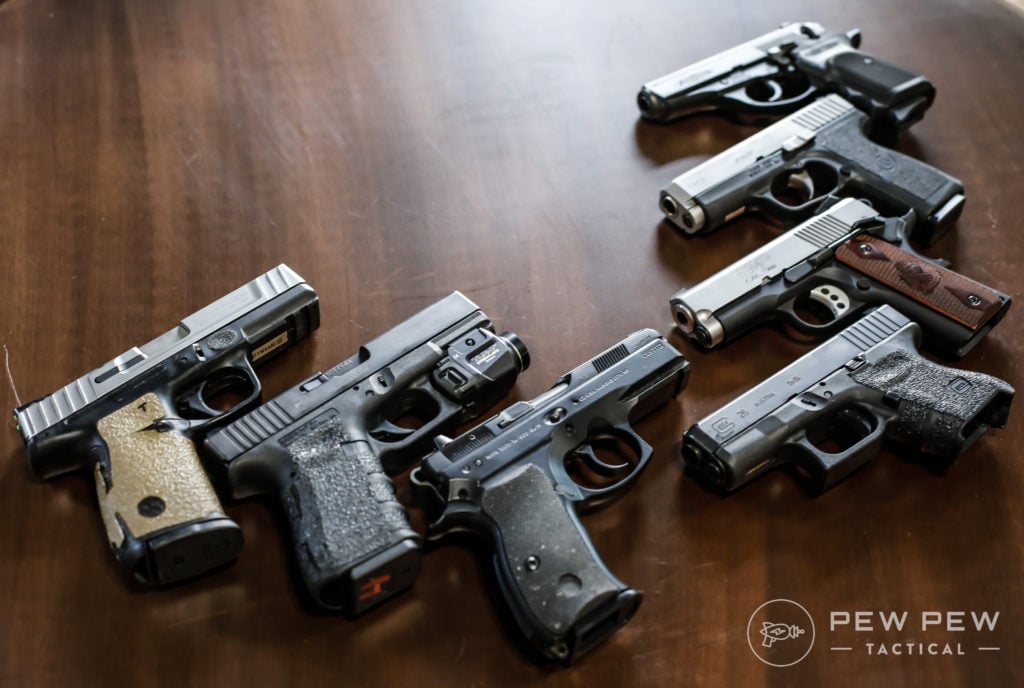
And after the actual purchase, you’ll need to wait 10 days before you can take possession of the gun from the gun store.
Buying from your local gun store is probably the easiest of the three ways.
Buying a Gun at a Gun Shop
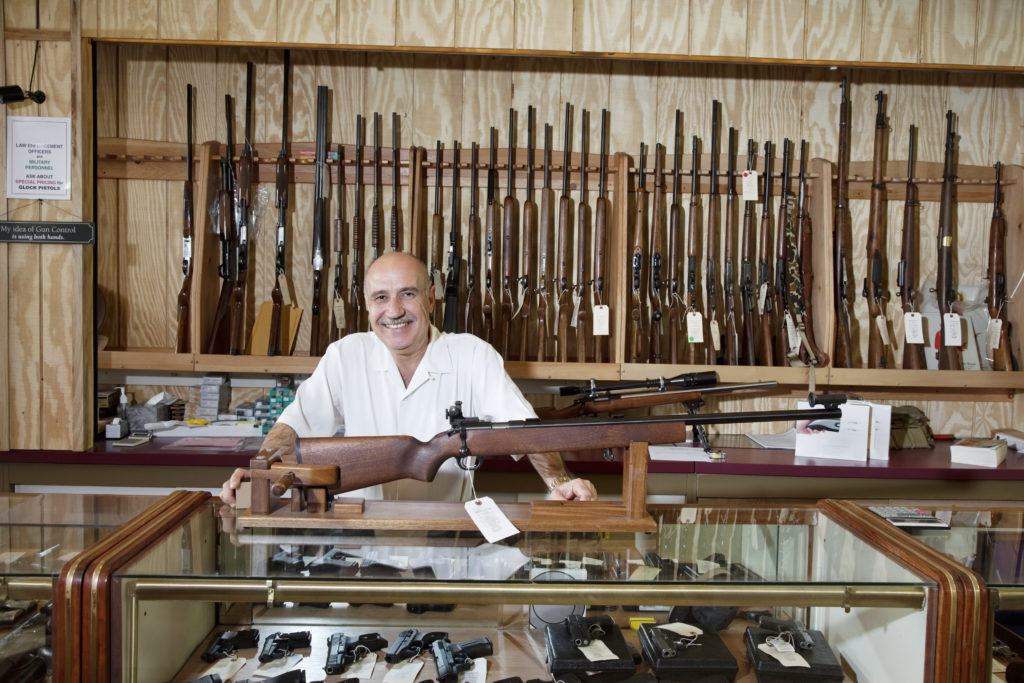
In this scenario, you walk into the store, pick out a gun, and go through the ID and background check process.
Once that’s all done, wait the 10 days, and go pick up your shiny new gun.
Buying a Gun Online
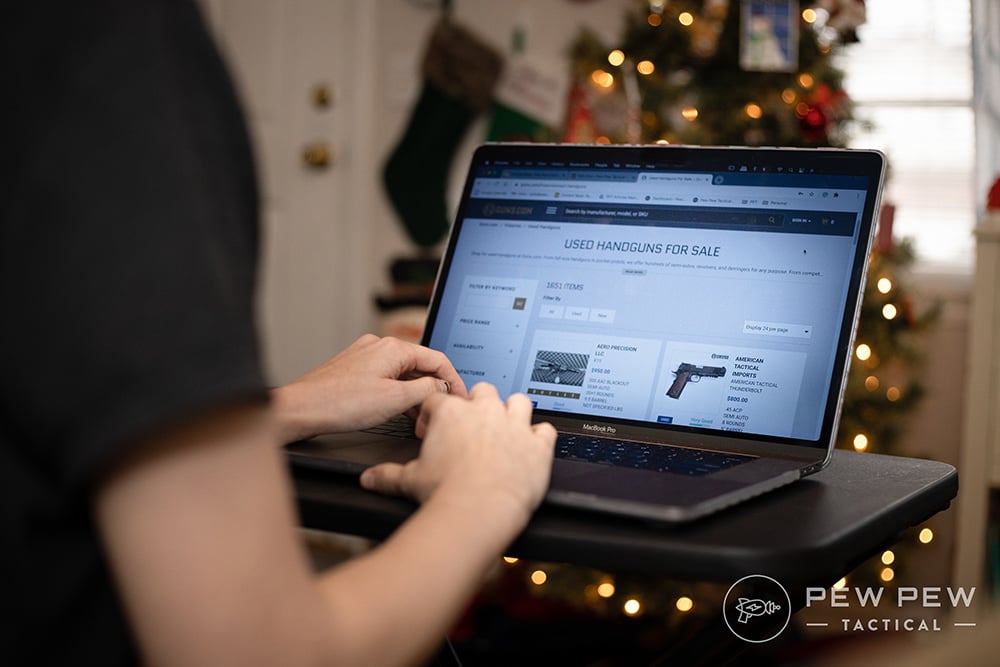
Online shopping is slightly different than in-person and features an added step.
That extra step involves ordering from an online vendor. When you do this, you’ll let them know which FFL — likely your local gun store — they should ship the gun to.
Prices accurate at time of writing
Prices accurate at time of writing
-
25% off all OAKLEY products - OAKLEY25
Copied! Visit Merchant
You can’t have a firearm shipped directly to your house, so you need to pick up the actual gun in-person from an FFL.
Everything after the ordering process is exactly the same as buying from a gun store.
Also, note that the 10-day wait starts when you start the paperwork at your FFL — NOT when you place the online order.
Need help buying online we have a TON of resources about that. Check out: How to Buy a Gun Online, Best Places to Buy Used Guns Online, and 10 Best Online Gun Stores: New & Used.
Private Sales
Finally, you can buy a gun through a “Private Party Transfer” (PPT). Doing it this way means buying from an individual rather than a gun store or online vendor.
It’s similar to buying in-person at a store, but you’ll be buying from a private person.
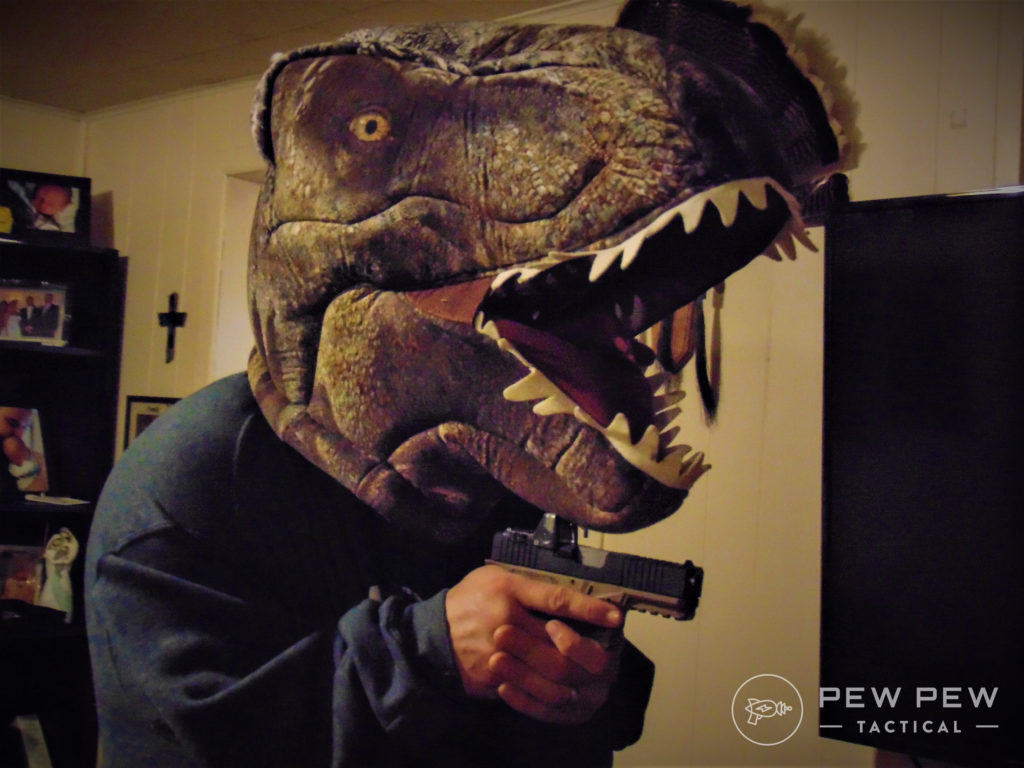
Once you figure out who you are buying from, you’ll both need to meet with an FFL.
Again, the rest of the process plays out like a regular purchase. And yes, there is still a 10-day wait.
Transferring Guns Between Family Members
If you transfer a firearm between family members of the “immediate family,” you do not have to have a background check done.
Your “immediate family” includes your spouse or domestic partner, parents, children, grandparents, and grandchildren.
However, your siblings are not included.
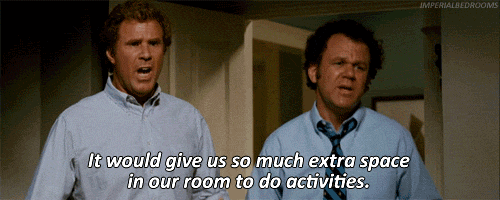
Keep in mind that the person you are transferring the gun must have an FSC to legally take possession of the gun.
Even with this transfer, you’ll need to report the change of ownership within 30 days of the transfer to the CA DOJ — usually through the website.
Taking the Gun Home
When you pick up your gun after the 10-day waiting period, you’ll need to go through a safe handling demonstration.
Basically, you show you know how to load and unload the gun safely.
If you are unsure, you can always ask the FFL to show you the process.
Skills you must demonstrate to the FFL include:
- Unloading the firearm;
- Visually inspecting to ensure the firearm is unloaded;
- Remove any locking devices (if necessary);
- Load a single dummy round into the firearm (either directly or into a magazine that is then inserted into the firearm);
- Unload the dummy round; and
- Place any locking devices back on the firearm if necessary.
The lock device part of the safe handling demonstration refers to a CA Department of Justice approved safety device.
This is either a trigger lock or some other type of lock that makes the firearm unusable when the device is engaged.
Every firearm purchased has to have a safety device.
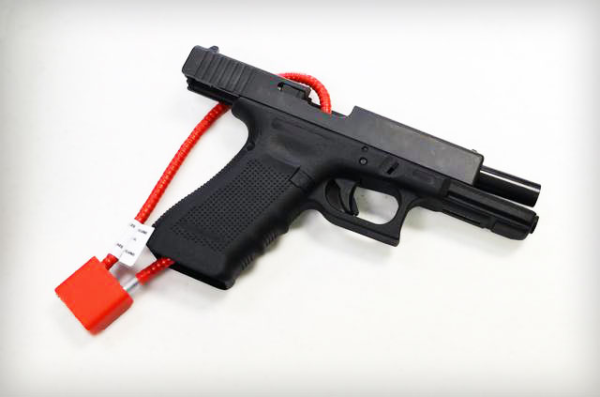
If you buy a new gun from your local gun store, the manufacturer usually includes a locking device with the gun.
But if you buy through a private sale, you’ll need to either get a locking device from the seller or provide your own.
Unless you can provide evidence of an approved gun safe, you’ll need to show that you purchased a firearm safety device in the last 30 days.
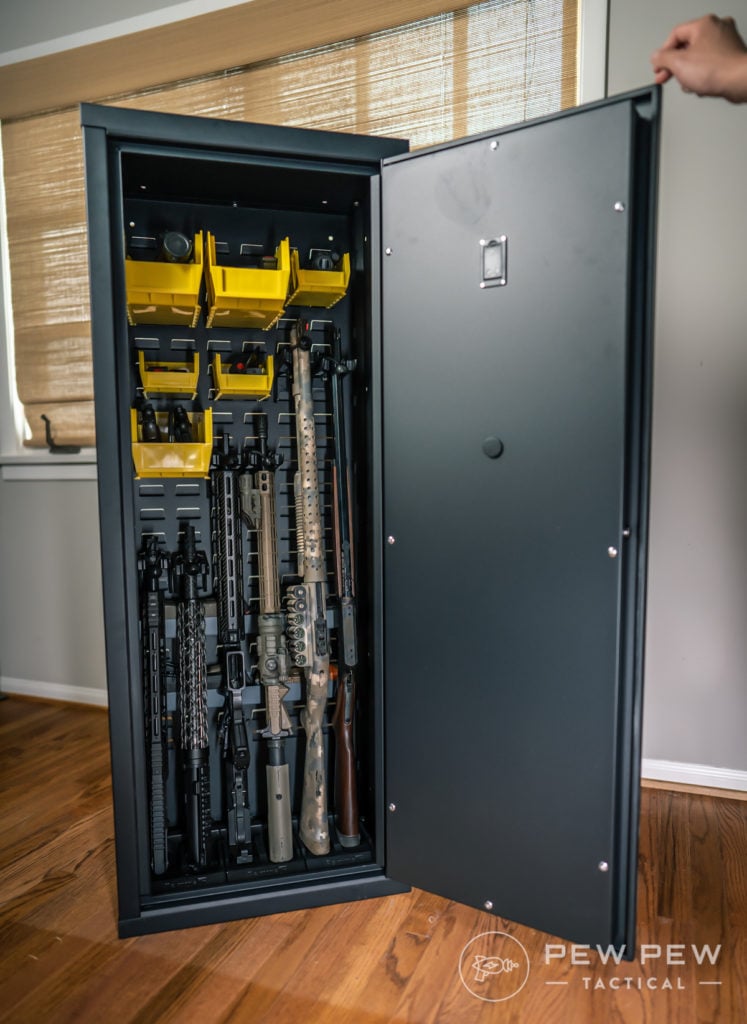
All handgun sales and transfers must have accompanying locking devices.
Proof that you own a gun safe is not sufficient when buying a handgun.
Buying Antique Guns
Finally, if you are interested in buying an antique firearm, we’ve got good news!
No jumping through hoops! You can just buy it like you would any other item.
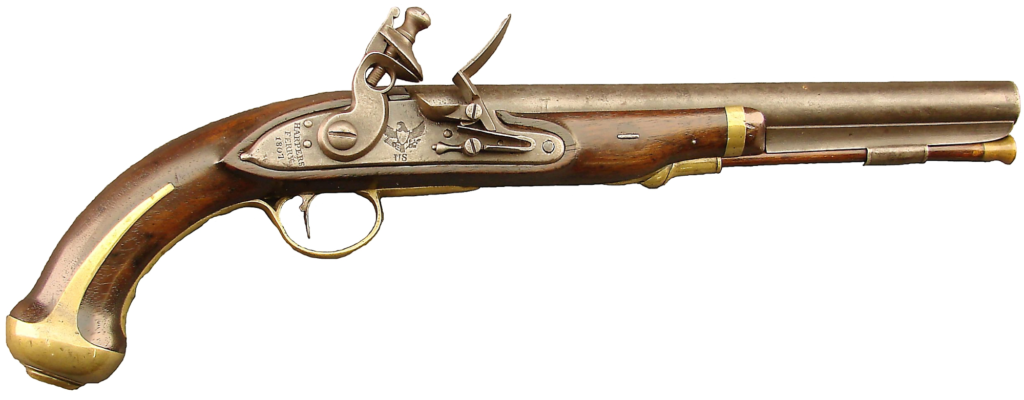
But…you’ll need to be absolutely sure the firearm qualifies as an antique.
An antique firearm is a firearm that is:
- Manufactured before 1899;
- Is a replica of an antique firearm that:
- Does not use rimfire or conventional centerfire fixed ammunition; or
- Uses rimfire or conventional centerfire fixed ammunition that is no longer manufactured in the US and is not readily available through normal markets; or
- A muzzleloading rifle, shotgun, or pistol, which is designed to use black powder and cannot use fixed ammunition.
If the gun meets the requirements under either 1, 2, or 3, it will qualify as an antique firearm.
Even better, antiques don’t require any of the steps you have to go through to buy a firearm in California.
That’s a win!

Conclusion
While California gun laws are different than what you might see in other states, they don’t have to leave you confused. Working through a few steps (and having your FSC card and a gun safe), you can buy a gun in California.
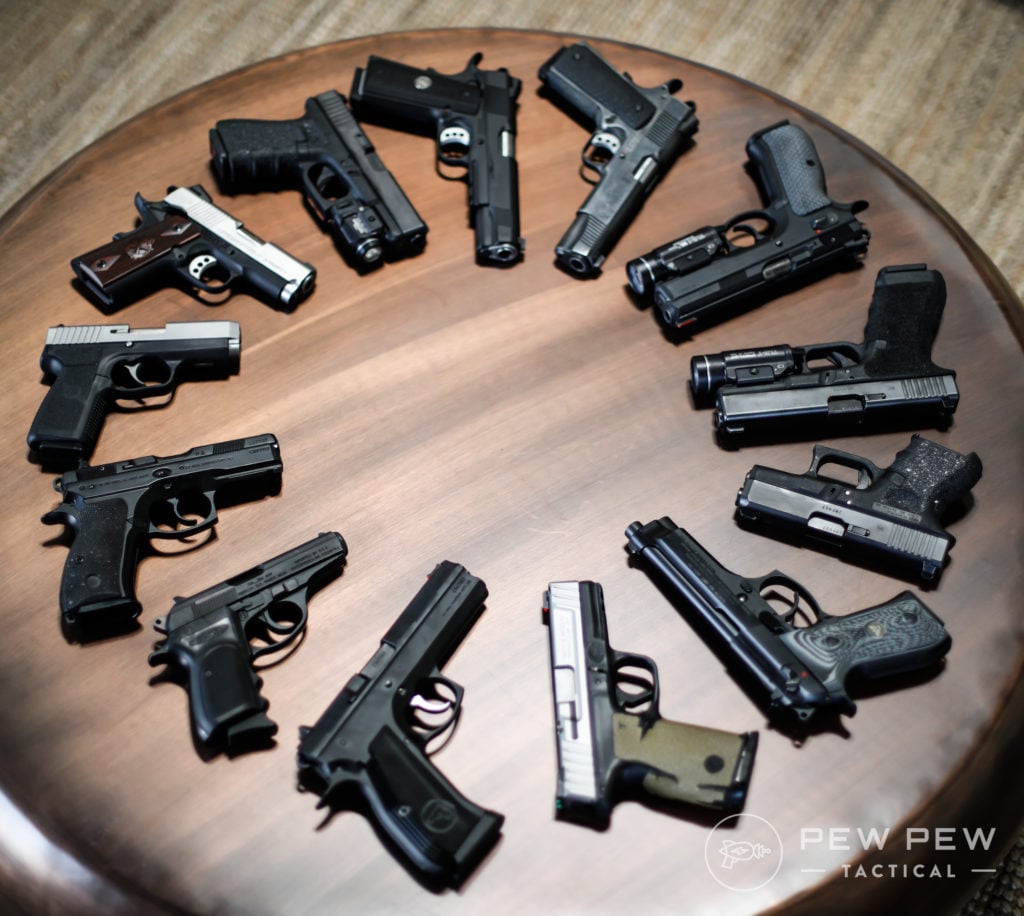
Do you live in California? How do you prefer to buy your guns? Let us know in the comments below. Be sure to check out our guide on California Ammo Laws to keep your guns happy and fed. You can also read up on California gun laws in general by heading over to our California Gun Law page.

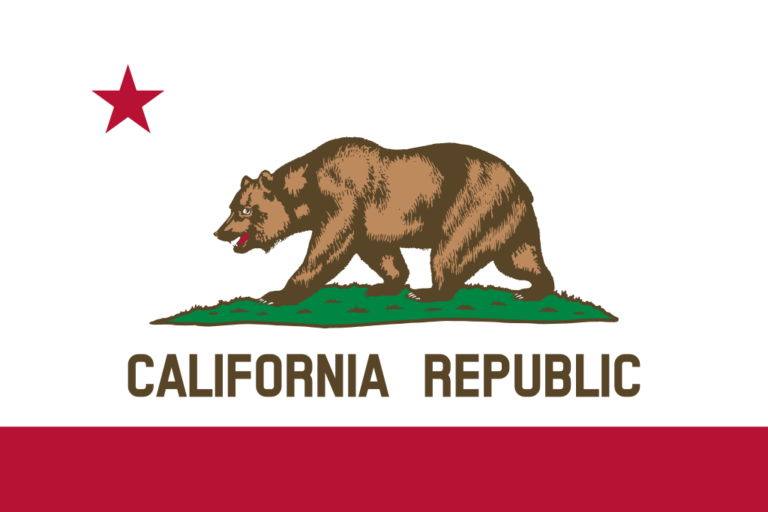





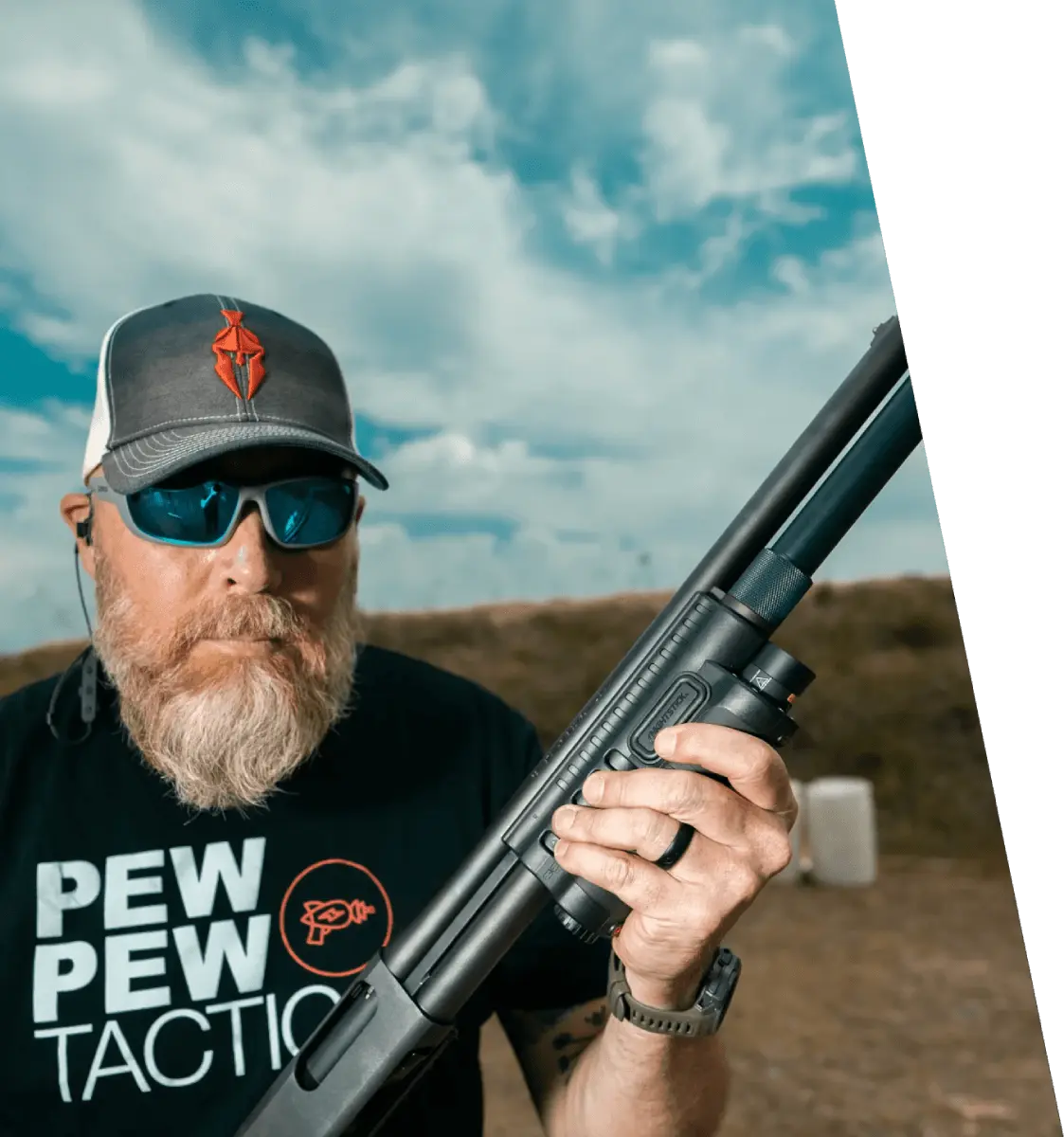

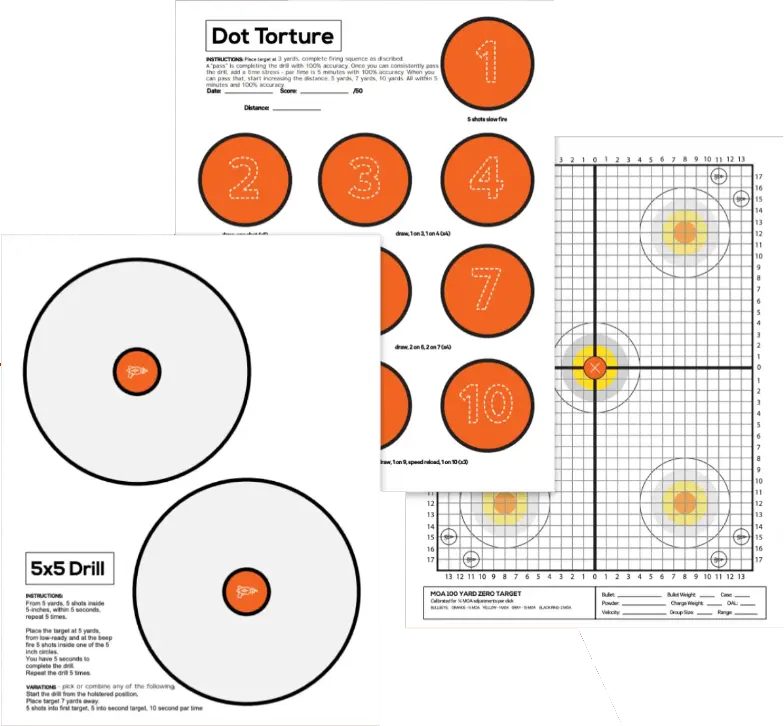
7 Leave a Reply
I am a bit confused. I think that one can buy a handgun in CA if they voluntarily admit themselves into a psychiatric hospital. The restriction comes when one is involuntarily admitted to a psychiatric hospital, right? Did I read that wrong?
No, California does not limit the caliber or type of ammunition you can buy to only what you have registered with the state. There are also no limits on the number of rounds you can buy.
Here are some other ammunition laws in California:
Eligibility check
You must pass an eligibility check and get approval from the Department of Justice (DOJ) before you can buy or transfer ammunition. You can get approval electronically through a licensed California Ammunition Vendor.
Fixed ammunition
California prohibits the sale, possession, or transportation of fixed ammunition larger than .60 caliber.
Advertising
California prohibits advertising or marketing ammunition in a way that targets minors under 18.
Gun and ammo tax
Starting July 1, 2024, there will be an additional 11% excise tax on the purchase of guns and ammunition in California.
There is something you left out! Now unless you have (whatever caliber your buying ) Commiefornia says they will only sell you ammo to what firearms you have registered! Don’t have any registered?? You don’t get no ammo!!
Can I buy a gen 5 Glock in California if it's used? Is there any other way? A gun show? gift? I'm looking for a louphole.
Interesting that nowhere on the internet does the question of buying a normal used handgun in California ever come up on the internet. I assume any type of used handgun can be purchased, as long as the 10 round magazine limit is observed. In other words, how to buy a used gun that is not on the CA DOJ approved list.
Or move to a non commie state and just pick one up without all the nonsensical restrictions. Seriously, other than being uncomfortable, what is the point of those ridiculous featureless fins?
I found this to be extremely informative because I plan on purchasing my first gun soon. I live in Cali, the state that hates the 2nd Amendment. And I have no experience purchasing a firearm. Thanks!